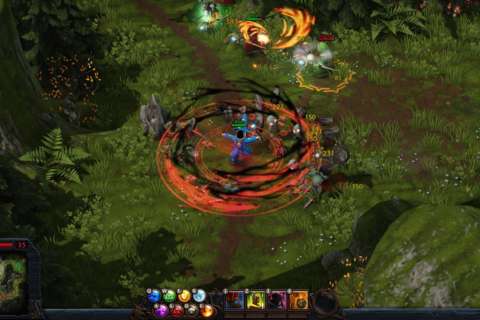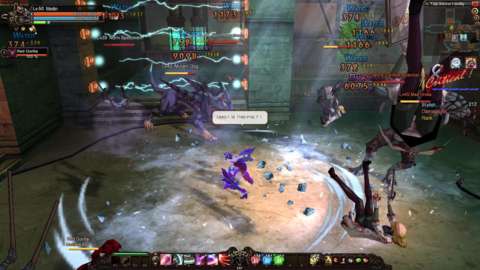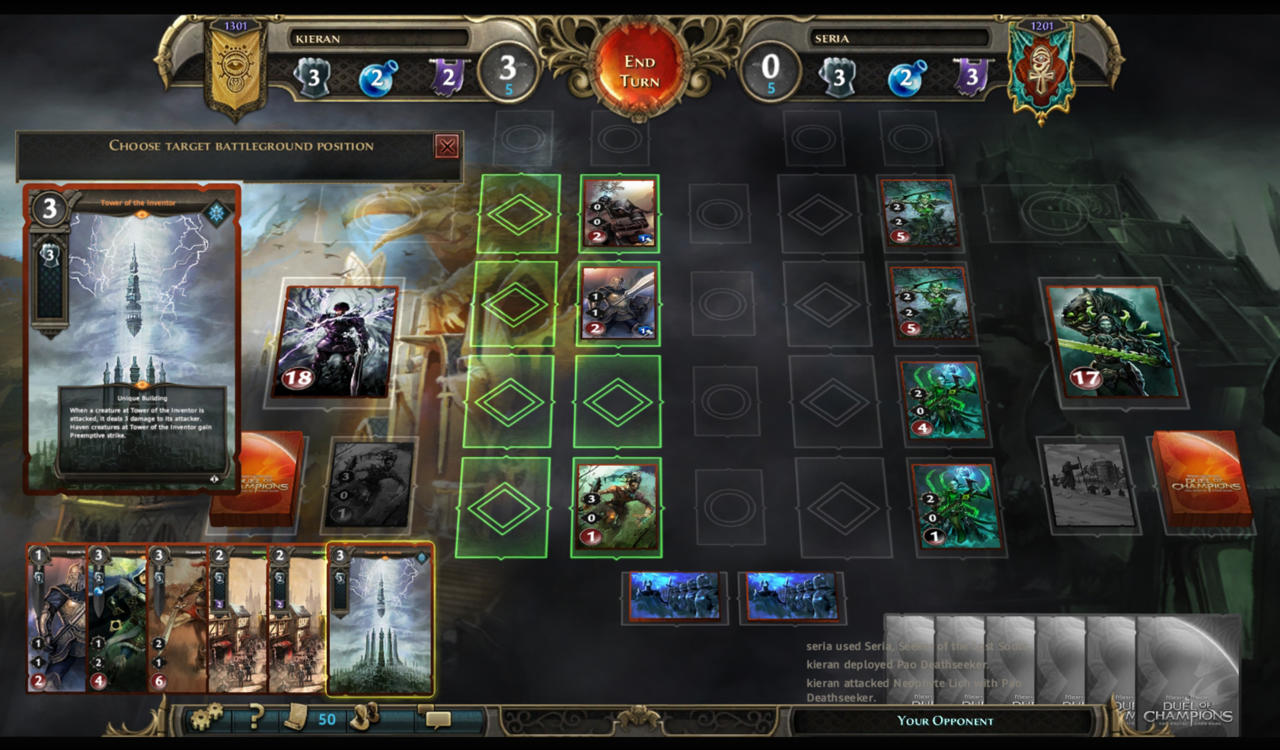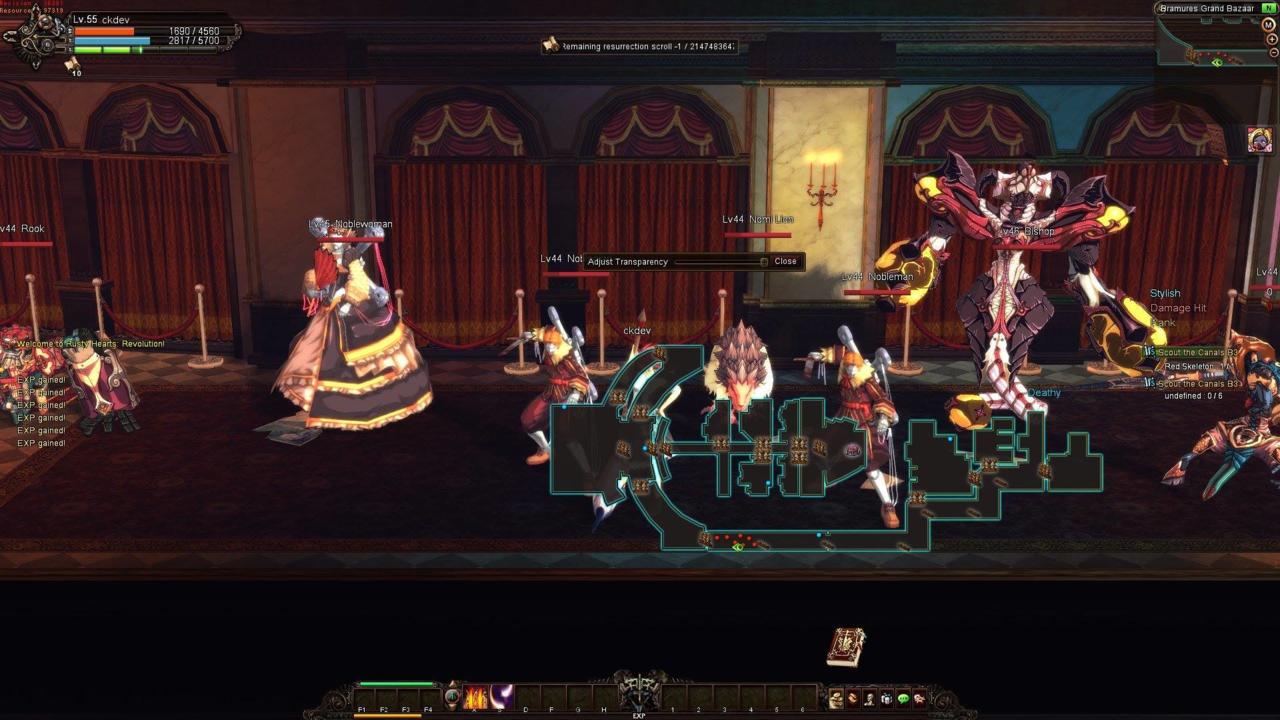When do you know an online game has truly died? Maybe you've returned to an old favorite after a few months off, only to find that all of your usual playmates have moved onto the next big thing. While it can be upsetting in the moment, it reflects an uncomfortable truth: Besides a handful of true outliers, even an outstanding traditional multiplayer game has a finite lifespan--sometimes measured in mere months.
As popular forever-games like Destiny 2 continue to soak up the playtime at the very top of the industry, the average life expectancy of less-mainstream multiplayer offerings has dwindled. In the last two years alone, several large publishers have unleashed a tidal wave of hype and marketing for projects that failed to live up to expectations, such as Valve's doomed card game Artifact, or BioWare's Iron Man fantasy simulator Anthem. But while most gamers have at least heard of these high-profile flops, there are dozens of multiplayer also-rans that don't make much of an impression on launch day. From losers of the now-forgotten MOBA wars like Magicka: Wizard Wars to virtual card battlers like Might & Magic: Duel of Champions, simply put, some of these games fail so hard that no one even realizes that they failed at all.
However, while these games never quite gathered the critical mass of players that their publishers so desired, most of them do boast a devoted fanbase. So when a large company like Ubisoft looks at a niche card game like Duel of Champions and decides to shut its servers down, that leaves a substantial number of fans in the lurch--locked out of their favorite game, permanently. While many might just dismiss this as the unfortunate fate that will eventually befall almost every multiplayer game out there, there might be a solution to these fans' woes. Unbeknownst to most of us, there are modders who specialize in bringing dead multiplayer games back to life. Ranging from singular hobbyists who just want a beloved favorite to rise from its grave, to non-gamer engineers who delight in the technical challenge that these projects present, you can find them if you know where to look.
Destiny 2: The Final Shape | Journey into The Traveler Trailer Metaphor: ReFantazio The King’s Trial Trailer Tales of the Shire - Official Announcement Trailer Dead Island 2 – Steam Launch Trailer Valheim: Ashlands - Official Gameplay Trailer Nickelodeon All-Star Brawl 2 - Official Zuko Gameplay Spotlight Trailer Fortnite Festival - Official Billie Eilish Cinematic Season 3 Trailer Remnant 2 - The Forgotten Kingdom | DLC Launch Trailer Stellar Blade - Official "The Journey: Part 2" Behind The Scenes Trailer | PS5 Games Starship Troopers: Extermination - Official "The New Vanguard" Update 0.7.0 Trailer Dead by Daylight | Tome 19: Splendor | Reveal Trailer 2XKO - Official Illaoi Champion Gameplay Reveal Trailer
Please enter your date of birth to view this video
By clicking 'enter', you agree to GameSpot's
Terms of Use and Privacy Policy
One of the most prolific modders in this space goes by the handle "RaT." Though he's perhaps best-known for his role on the team that brought back Magicka: Wizard Wars from the dead after it originally shut down in mid-2016, he's amassed quite the resume over the past few years. By his own count, he's contributed to at least a half-dozen different revival efforts for different games, with varying levels of success, including the free-to-play shooter Loadout, the head-to-head Tetris clone Cultris, and the PvP-focused MMORPG Forge.
While RaT said he enjoys the process of giving back these games to their fans, he's not much of a gamer himself these days. He grew up in a rural part of the American Midwest, and his family had to scrape together money to buy old consoles when they would go on sale. He chalks up the majority of his gaming experience to NES fare like Duck Hunt, as well as the entire Zelda series. He first started messing around with the digital innards of games when his parents bought him a Game Genie after he spent a little too much time on a Nintendo "hint line," a telephone number that early gamers could call for tips on their favorite games. (It was also quite expensive--around $5 a minute in 2020 dollars, adjusting for inflation.) This "cheat cartridge" allowed him to put in codes that modified variables in various games, granting boosts like unlimited lives. But RaT's interest in the crude hacking device was less about giving himself "god mode" and waltzing his way through the ferociously-difficult Zelda 2, and more about understanding how these games worked on the ones-and-zeroes level.
"I've long been obsessed with figuring out how things worked," he told GameSpot via Discord. "My mother would often bring me home old, broken clocks or antique radios to tear apart and fix. This was no different--I had to understand how it worked and figure out how to reproduce it. That drive hasn't changed much over the years, as I've involved myself in building trainers for the original Xbox, producing save editors and cheat engines for the Xbox 360, and making trainers for PC games."
Despite his considerable prowess, RaT describes himself as an entirely self-taught programmer--though he's taken a few classes at local universities for credit, he's never actually held a job in the field, instead working as a network engineer. He views these projects as a hobby, born out of a natural curiosity for putting broken things back together. As far as his relevant experience, he ascribes much of his skills to his early adoption of Linux, which required him to learn how to manipulate device drivers and understand the fundamentals of hardware interfacing at a very low level to get much of anything to work correctly.

RaT said he never even set out to join any of these revival projects--it was only a chance online meeting that started the process. "I was sitting in CEMU's [a Wii U emulator] Discord, discussing some technical aspects of emulation in general, when a member named 'DEF' messaged me and asked if I had ever worked on reviving games, because he was trying to jumpstart interest in bringing back Magicka: Wizard Wars. My involvement in other games has happened just as randomly, with people messaging me, and I take a look to see what I can do."
When it comes to the process of actually bringing these games back to life, RaT said the methodology differs quite a bit depending on the game itself. Though the type or genre obviously factors into the complexity of the undertaking--action-oriented fare like first-person shooters have very complex physics interactions, while MMORPGs tend to have more in the way of a networking architecture--as RaT explains it, the engine that the game runs on can make or break the feasibility of the project. If the developers leveraged a popular engine that boasts a lot of publicly-available documentation, like Unity, the process becomes a lot easier, since RaT can easily understand the basics of how the game works, if not every nuance. However, if the team decided to construct its own engine, revival becomes a lot harder, since only the people who designed the engine have the complete picture. In the case of Wizard Wars, since the game was built in Bitsquid, a relatively well-known engine, RaT was able to figure out most of what he calls the "game logic" without much trouble.
As RaT attested, for most of these projects, the modder's essential task is to try to recreate the missing multiplayer server, since that's what the game's publishers shut down when they formally decide to kill their game. This process starts with diving into the code of the game client itself to try to figure out how the communications between the server and the people playing the game work--some games put more of the load on the player's computer or console than others. Sometimes this process can produce disappointing results: For example, in the case of Loadout, RaT soon discovered that the game's proprietary engine handled its physics model on the now-dead server, rather than with the player's machine. Without much to go on, RaT concluded that it was likely impossible to try to recreate the server from scratch, since the game program the player uses--the client--offered few clues. For Wizard Wars, however, the client included enough of the server-side code that he was able to use trial and error to convert said client into a prototype of a dedicated server. ("Typically, a lot of these multiplayer games include a client-side physics engine due to support for tutorials or bot-matches," RaT explained.)
I try to be fairly open to mentoring and teaching people how to do things, but I have a very low tolerance for those who refuse to help themselves and simply want it done for them
RaT
However, this is where the process usually gets hairy. If the modder doesn't have all of the server-side code, they have to engage in a long process of figuring out what client-side command lines up with the server-side logic. In the case of Wizard Wars, RaT was able to clone the vast majority of the logic from the game itself, but the rest was a long process of guesswork, with a team of testers validating the most minute aspects of gameplay, such as damage values or attack timings, to ensure they lined up with the dead "official" servers.
While this phase can seem straightforward enough once you understand the logic behind it, the actual process can take a long time to implement, depending on the complexity of the game. Consider the case of Rusty Hearts, a free-to-play MMORPG that was quite popular in East Asia, especially in Korea. Around 2014, fans of the game began to notice a shift in support, and they decided to do something about it. "Everyone is familiar with that sad period when you know a publisher is getting ready to pull out," said "ckspike," a modder and programmer who worked on the project. "Content dries up, game balance suffers, all while cheats and bugs fester. I got together with a small group of like-minded players to try to fix some of the balance issues and unlock some of the hidden content through mods."

When the game finally did shut down in mid-2014, that group decided to do whatever they could to bring Rusty Hearts back to life. Now, after nigh on six years of development, the team has finally released their revived version of the MMO to the public, dubbed "Rusty Hearts Revolution." Ckspike describes this reverse-engineering as an elaborate game of Jeopardy, albeit at a much larger scale.
"Almost every action you do in the client sends data to the server in what's known as a 'packet,'" ckspike said. "The server then sends a reply packet back. If you try to step left, a packet gets sent to the server that asks to step left. The server sends one back that says, 'okay, you can step left,' or 'no, you can't move.' As you can imagine, there are thousands of these, and they are relatively straightforward. Others are like Jeopardy, where the client sends the 'answer' and we need to figure out the 'question.' It might say a number like '4532,' and through testing and deduction, we need to figure out what that packet represents. It could be a character speed, an item ID, or just about anything else. The community is a huge help because we had literally hundreds of testers sign up to report bugs and give feedback. They find things we missed so much faster than we could on our own."
For ckspike and other members of this modding effort, the community of die-hard Rusty Hearts fans provides the fuel that keeps the lantern burning, even six years after the game drew its last official breath. Now that their revamped version of the MMO is finally out the door, the team is continuing on the warpath, stomping out bugs and rolling out support for the game's PvP modes, slowly but surely, even developing a roadmap for new patches and fresh content sometime in the future. But while the fanbase's undying ardor for the game gives these modders a well of motivation to draw from, not all of the interactions are always positive.
Though RaT admits that he has never actually played any of the games he's resurrected, thus making him an outsider to these communities, he said he sometimes runs into a sense of entitlement from some in these spaces, specifically from those who lack the technical skills to actually contribute to the project. "I try to be fairly open to mentoring and teaching people how to do things, but I have a very low tolerance for those who refuse to help themselves and simply want it done for them," he said.

Though RaT's breadth of experience speaks for itself, he's an anomaly in the modding scene--most of the developers reviving these games are hardcore fans themselves, like the Rusty Hearts team. Some of them even have a reputation for sticking to a particular game or franchise. Might & Magic: Duel of Champions developer 'Baratorch' first honed his programming skills creating custom mods for Heroes of Might & Magic 3, before turning his attention to online card battle game Duel once Ubisoft closed the game in 2016. Though Baratorch continues to work on his revival today--even enlisting help from the game's former community to rebalance the game's cards themselves--he said he's unlikely to attempt any similar project in the future. Ckspike echoes this response: "In terms of working on another game, probably not. This project consumes thousands of hours and is a labor of love. Our group plans to continue working on this game for a long time to come."
Regardless of their personal impetus for embarking on these projects, all of these modders share a similar hazard--the ever-looming threat of legal action from the people who own the dead games they're reviving. Ckspike noted that many so-called MMO "revivals" have involved dubious actors setting up private servers for a dead or dying game, only to charge exorbitant membership fees from players. While the Rusty Hearts Revolution team knows full-well that they operate in a legal grey area, they also note that the original developer has been shuttered for years now, and the rights for the game have reverted to an unknown owner. RaT said he takes some precautions to minimize these apparent legal hazards: he only works on free-to-play games, and he won't contribute to any effort to circumvent DRM, like developing "cracks" for retail games. Even still, he knows that a cease-and-desist letter can come at any time.
Regardless of their personal impetus for embarking on these projects, all of these modders share a similar hazard--the ever-looming threat of legal action from the people who own the dead games they're reviving.
"[My work] ends up falling into some murky legal territory, as it often violates EULA agreements that may or may not be enforceable with companies that may or may not even still exist," he said. "I try to approach each game in light of their corporate entity--some have been rather welcoming to the projects, while others are vehemently opposed to anything involving their intellectual properties. In those cases, we just try to fly under the radar in hopes they do not notice us."
Once the server is back online, these communities are confronted with another arduous task--keeping these games alive past the initial dopamine rush of nostalgia. In RaT's experience, getting players to continue populating the server is almost impossible, and the games "die all over again" as they become abandoned once more. The Rusty Hearts team remains steadfastly optimistic, however: they plan to introduce new content and events into their beloved game, just as if it was still online.

My advice to anyone who wishes to try to revive a game themselves would be to not be afraid of failure.
RaT
Plenty of well-known hit games struggle with sustainability--for example, fans of the Dark Souls series hold annual initiatives to bring players back into their favorite entries, like "Return to Lordran--but, from a preservationist's perspective, being able to play these games at all is an achievement worthy of celebration in itself, and one that will likely continue as servers continue to flame out in this era of live games.
"My advice to anyone who wishes to try to revive a game themselves would be to not be afraid of failure," RaT said. "Read all that you can find, join communities of games that have been revived and learn about the processes they took and try to implement them yourself. Don't be afraid to ask questions and don't be afraid to get it wrong."

